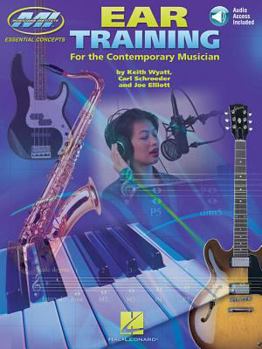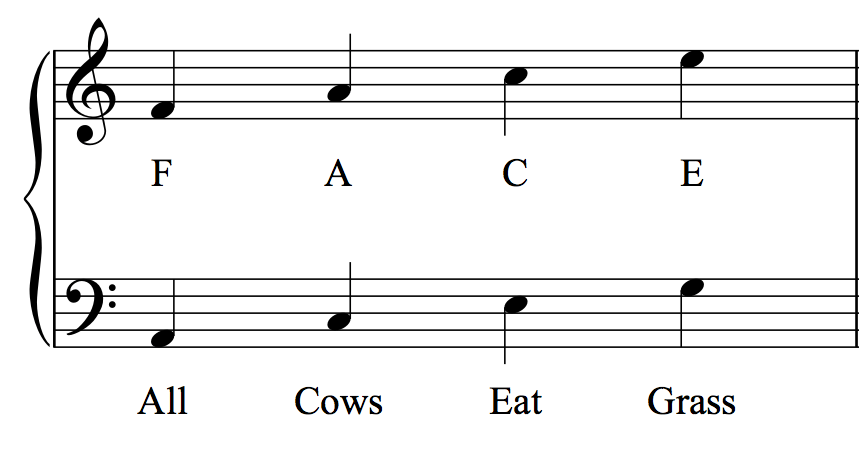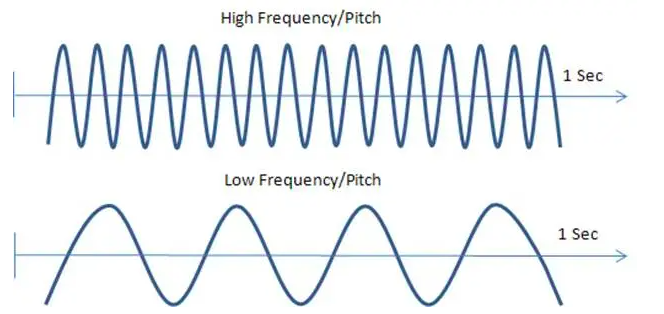9 Expert tips to cure tone deafness for a professional singer
Are you a professional singer, or aspiring to be and ever been told you are off key? It happens to all of us. No matter how good or advanced your voice is. Does it seem like you’re always pitchy and can never stay in tune? Yet you know you have an actual great singing voice. You may have been told you were tone deaf. For singers, that’s one of the worst things you want to hear someone say. Some would even call it an insult. Fortunately, there’s a solution for it.
What is tone deafness?

Before we get into curing tone deafness let’s first determine what it actually is. Tone deafness is a condition where one doesn’t have the ability to perceive or hear the difference between music pitches. The proper name for it is amusia. Amusia is a condition one is born with or is caused by a neurological disorder. Only about 4% of the population has it. This means 9 times out of 10 you’re not really tone deaf. You just have an untrained ear. Thankfully here are 9 effective tips to cure tone deafness for a professional singer. They include ear training, learning an instrument, humming exercises and more.
1) Ear training
Arguably the most effective way to cure tone deafness for a professional singer or any type of singer is through ear training. Ear training is when a person learns how to identify and recognize musical pitches. The better you train your ears, the more you’ll be able to hear different pitches and match them with your voice. Below are great ways to get started with training your ears to become a professional singer:


- Professional voice lessons – in person or virtual singing lessons. Express to your vocal coach how you want to put an emphasis on training your ears. Legendary vocal coach and professional singer Sherry Wilson Butler is a great option for voice lessons.
- YouTube tutorials – following along to different YouTube tutorial that shows you how to train your ears is another great option.
- Ear training music book – Teach yourself from an ear training music book that offers step by step instructions. “Ear Training for the Contemporary Musician” by Keith Wyatt, Carl Schroeder and Joe Elliott is a great resource for this.
- Using the ear training website called “Tone Dear” that allows you to listen to a variety of musical pitches and test yourself on what you’ve learned.


When training your own ears without any assistance. One of the best methods to make sure you’re success is to start with small music exercises. Then once you master that move on to another task. Here’s a list of music elements you should train your ears to hear.
- Single pitches
- Music intervals (the distance between 2 different notes)
- Triad chords (3 note chords)
- Arpeggios (the notes in a triad chord played individually instead of together)
- Music scales
2) Learn to play an instrument


Learning to play an instrument is one of the best ways to cure tone deafness and help become a successful professional singer. Most great singers know how to play an instrument or at least knows the fundamentals of it. This is because every instrument follows the voice one way or another. Once you start to play an instrument it will help fine tune your ears. You’ll be able to recognize the distinction between pitches in ways you never knew. The #1 instrument you should learn to play to help build your ear training is the piano. This is because every instrument follows the piano and the piano follows the singing voice closer than other one. The piano is the only instrument that can match every voice type, octave and area of the voice. No matter if you’re a soprano, alto or tenor. The piano can follow your voice. Learning to play this instrument doesn’t mean you have to become as advanced as Stevie Wonder or Alicia Keys. You can learn the basic to where you know how to follow the melody line only. This will help you sing the leading vocals in tune. To get started learning the piano you can sign up for virtual lessons or private in person lessons. Other instruments you can learn that will help cure your perceived tone deafness are:
- Guitar
- Violin
3) Sing Softer and Calmer
You may be under the impression that you’re tone deaf because you can’t hear the notes. But the reason you can’t hear the notes may be because you’re singing too loud. If you sing unnecessarily loud you’ll end up eventually screaming and not being able to hear yourself. This means you won’t be able to hear when you go off key or when your volume is too high. Try singing softer and calmer and letting your vocal volume gradually increase. This will allow you to hear yourself more and correct anything you’re doing wrong.


4) Learning music theory


Another way to grow as a professional singer and fine tune your ears is to learn music theory. Learning music theory isn’t only for musicians and composers. It will also help take your vocals to the next level. Knowing exactly what it is you’re singing and the purpose of singing particular elements can help to cure tone deafness. For example, learning how to sing the melody to a song is much easier when you know what a melody is. Understanding the difference between a major and minor interval and what they’re suppose to sound like will help you with actually producing that expected sound. You don’t have to become advanced as your music theory if you’re striving to become a professional singer. Just knowing the basics is a great tool. To get started sign up for online or in person music theory lessons. Or you can follow along to some YouTube tutorials for beginners.


5) Understand how pitch works
Professional singers who have great voices and know how to use their voice also have a great understanding of how pitch works. One of the reasons you may be under the impression that you’re tone deaf is because you don’t truly know how pitch works. In music, pitch is how high or low a note sounds. There are many pitches in music and are named by the letters A-G. We call that the “music alphabet.” If someone refers to your note as “flat”, that means you’re singing lower than the correct note. If your note is “sharp”, that means you’re singing higher than the correct pitch. If you’re on pitch that means you’re matching the note precisely with your voice. If you’re singing “off-key”, that’s another phrase for singing out of tune. That means you’re singing multiple notes that are either too high or too low and it’s not in harmony with the music or accompaniment. The secret to fixing pitchy singing is to through breath support. Most of the times when one is off-key that means they don’t have enough air to support their voice. Knowing all of this as you strive to become a professional singer will help you to stay in tune and listen to your voice more as you sing. Ultimately aiding to cure your tone deafness.


6) Humming
Humming is a very powerful tip to help one who desires to become a professional singer overcome tone deafness. When you hum a song, the brain automatically hears the melody and forces you to hum the melody you’re hearing. This allows you to now sing in the proper key. If you’re a singer working on a song then the melody is the most important element to you. So humming would be a great tool to help you not only hear the music but stay in tune. Humming is actually apart of a lot of vocal warm-ups. You can also hear some singers humming in their songs, and humming as a way of ad-libbing during live performances. Below are a list of some famous songs where’s the singer is humming on the record:


- Whitney Houston – A quiet place
- Frankie Lymon – Little bitty pretty one
- Beyonce – Irreplaceable
7) Take a second to listen to the song
It may appear that you’re tone deaf because you don’t give yourself a chance to listen to the song. Sometimes as professional singers we’re so eager to start singing the song that we jump right into it. But we don’t give ourselves time to let the music kick in and listen to it. Before you start singing give yourself a few seconds to tune into the music and arrangement. This allows you to recognize familiar elements of the song. You can even pick up what the key is. Depending on how long the intro is to the song, hum for a little bit before it’s time to sing the actual lyrics. This allows you to hear the music, catch the melody and tap into the song.
8) Listen with your heart
Being a professional singer isn’t just about having an impressive voice. It’s also about singing with emotion and passion. A lot of times when we sing, we find ourselves doing it for vanity reasons and miss the true purpose of performing. It’s about singing from the heart. This also means listening with your heart. If you take a moment to listen with your heart, understand the story the song is telling, you’re now more connected to the song on a deeper level which will translate when you sing. This too can help your tone deafness and help you sing in tune.


9) Be more confident
Whether you’re a beginner, local or professional singer, confidence works wonders. When you’re confident and have faith in your talent you’d be surprised what your voice can do. If you’re nervous and second guessing your singing this can literally cause you to sing out of tune and appear tone deaf for the top 2 following reasons:
- Your lack of confidence causes you to be so uneasy that you’re nervous system now produces tension in your body that reflects in your voice. The muscles you need to sing beautifully are tense and tight. When singing you need your the muscles in your mouth and jaw to be relaxed.
- The anxiety you have from nervousness is effecting your stomach and you need your stomach to function properly when singing because that is what supports the air and gives you breath control. If you don’t have enough air you now run the risk of sing the wrong pitch, which then gives you the illusion that you can’t hear the tone and must be tone deaf.


The best way to overcome this nervous and sing more confidently is to practice. As the old saying goes practice makes perfect. The more you practice and know you put in the work to give a great performance as a professional singer. The more confident you’ll be in your skills. This will result and a relaxed, flowing and in tune vocal performance.
Applying these expert tips to cure what you perceive as tone deafness will drastically improve you as an aspiring professional singer. With anything you’ll have to remain consistent to see results. However, these tips are so effective that if you keep up with them you’ll notice a difference in just 30 days. You’ll go from believing you’re “tone deaf” to being told you have a great ear by fellow singers and musicians.
